Happy Earth Friday from SAKALA
News for a better world from the SAKALA community center in Cité Soleil, Haiti
Today is a good day to plant a seed. It’s a good day to grow.
Whatever day you are reading this, it still holds true…but on the day I am sending this newsletter, it also happens to be Vendredi Latè at SAKALA.
SAKALA started to do once-a-week Earth Day celebrations last year when they decided that the one Earth Day on April 22 was not enough.
On Vendredi Latè ( Earth Friday in Haitian Creole), children at SAKALA plant the seeds of trees that we hope someday will re-forest a nation that is on the front lines of the climate crisis, just as we hope the children themselves will grow to be great leaders of Haiti.
It starts with the planting of a single seed.
That’s what these kids are doing in the picture below on a recent Vendredi Latè at SAKALA (and are likely doing today).
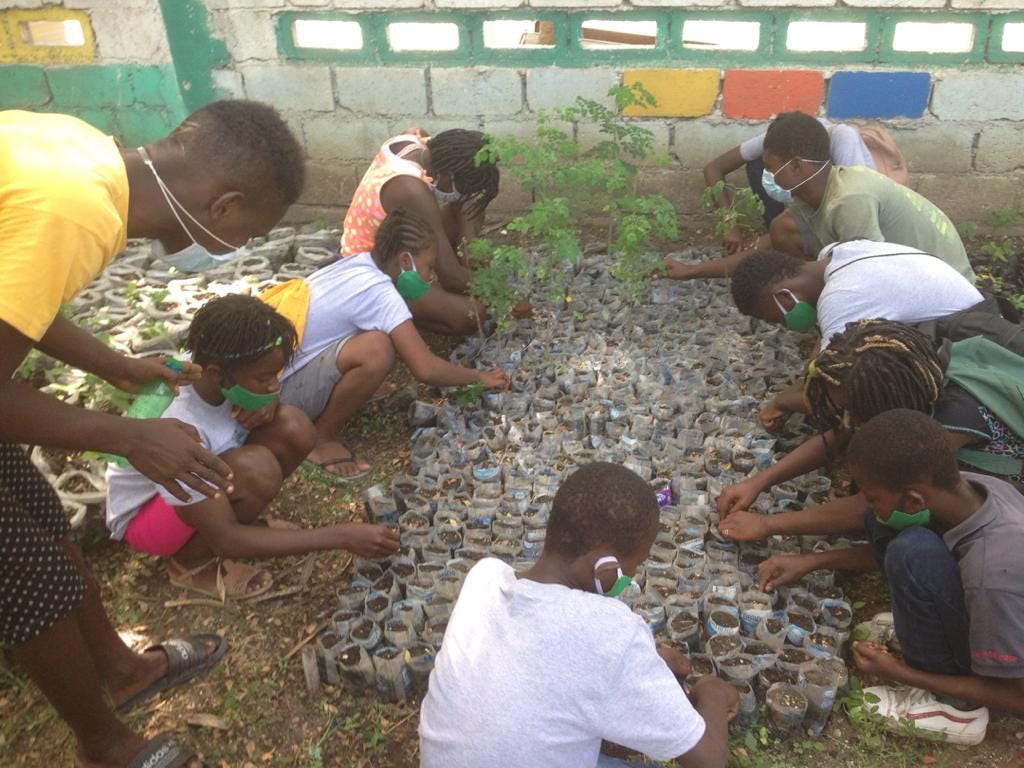
The environment in Cité Soleil is in a state of chronic disaster – plagued by frequent flooding and a deeply inadequate (often non-existent) trash management system.
For example, just over the wall from the beautiful community garden at SAKALA — where the kids are planting all those seeds — there is this. Most of this trash comes down from neighborhoods higher up in the hills of Port-au-Prince, which just adds insult to injury in Cité Soleil.
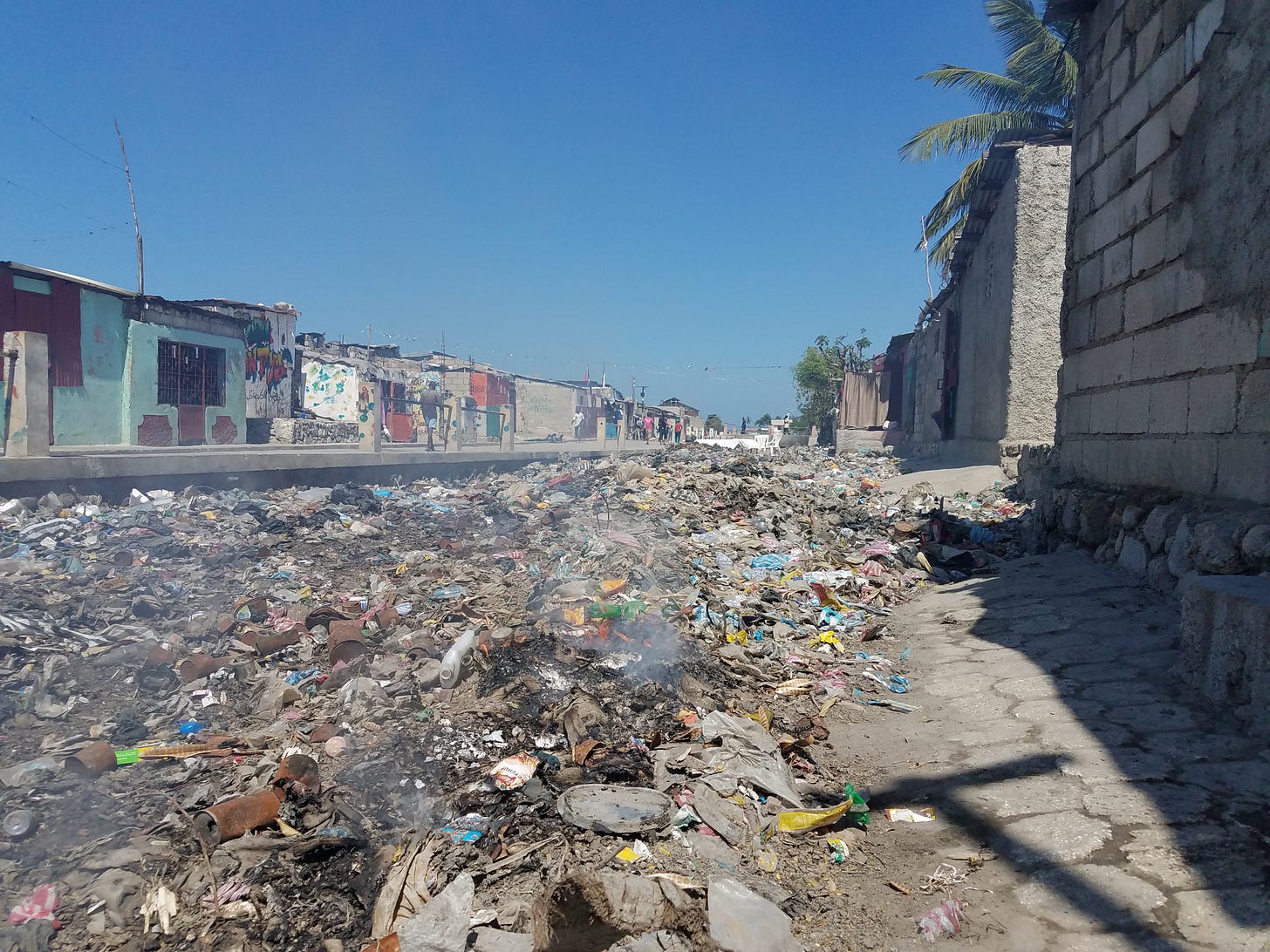
At night, the canal often looks like this, because the only way for people in the community to control the trash volume is by burning it.
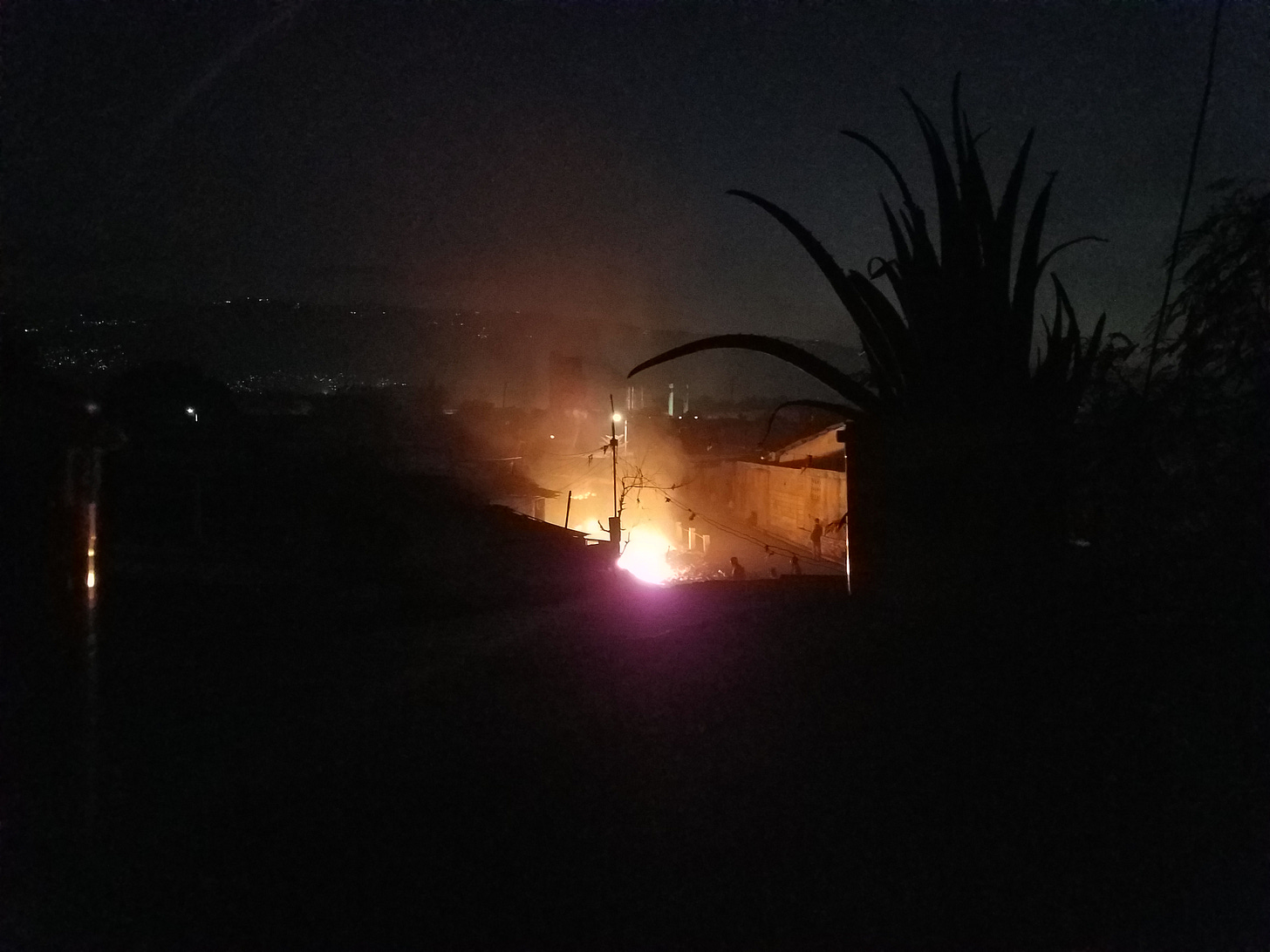
My room at SAKALA, where I took the nighttime picture above, fills with smoke and gets noticeably hotter when the canal trash is burned. This, even though I am high above it on a second floor and relatively protected.
The children at SAKALA and the families of Cité Soleil aren’t so lucky. They live right next to the toxic smoke and fire. When it rains, their homes flood with dirty water. When the rain stops I can hear people come out in the middle of the night to sweep out the water. They can have what we would consider here in the US the equivalent of a small natural disaster after a 15-minute downpour.
I wish I was exaggerating.
In the last year, violence has unfortunately gripped the communities surrounding SAKALA as well. So on one night back in February I could hear gunshots in the streets below. Then a rainstorm that stopped the gunshots, but flooded the homes.
So when the rain stopped, the people who lived by the canal had a choice to make: let the dirty water fester in the home where it could cause disease and ruin belongings.…or go out into the streets to push the water out and risk being shot if the gunfire started again.
A terrible, terrible choice.
Shortly after the rain stopped, I heard the sounds of sweeping in the dark, of pushing the water out of homes for another night. The sound of neighbors helping neighbors.
The environmental situation in the Cité Soleil neighborhoods around SAKALA is a human rights issue— one that deeply affects the health, education, and economic prospects for the area.
SAKALA is working with Dignity Rights International — an organization that “uses legal and educational tools to advance the dignity rights of vulnerable people around the world” — to see if there is a way to put international law to work to address the situation.
In the meantime, the people at SAKALA and in Cité Soleil are not just waiting for help — it could be a long wait for any number of reasons.
One of the extraordinary things for me about SAKALA is that they face up to this admittedly grim situation with creativity and grace– as well as an eye toward making these terrible obstacles, somehow, into a strength.
I’ve written before about SAKALA’s FatraKa (Trash Can) art program where young artists recycle items found in the trash to make cool and beautiful masks and frames. (Here is one of our talented artists, Berlande, at work on one of her signature pink frames.)
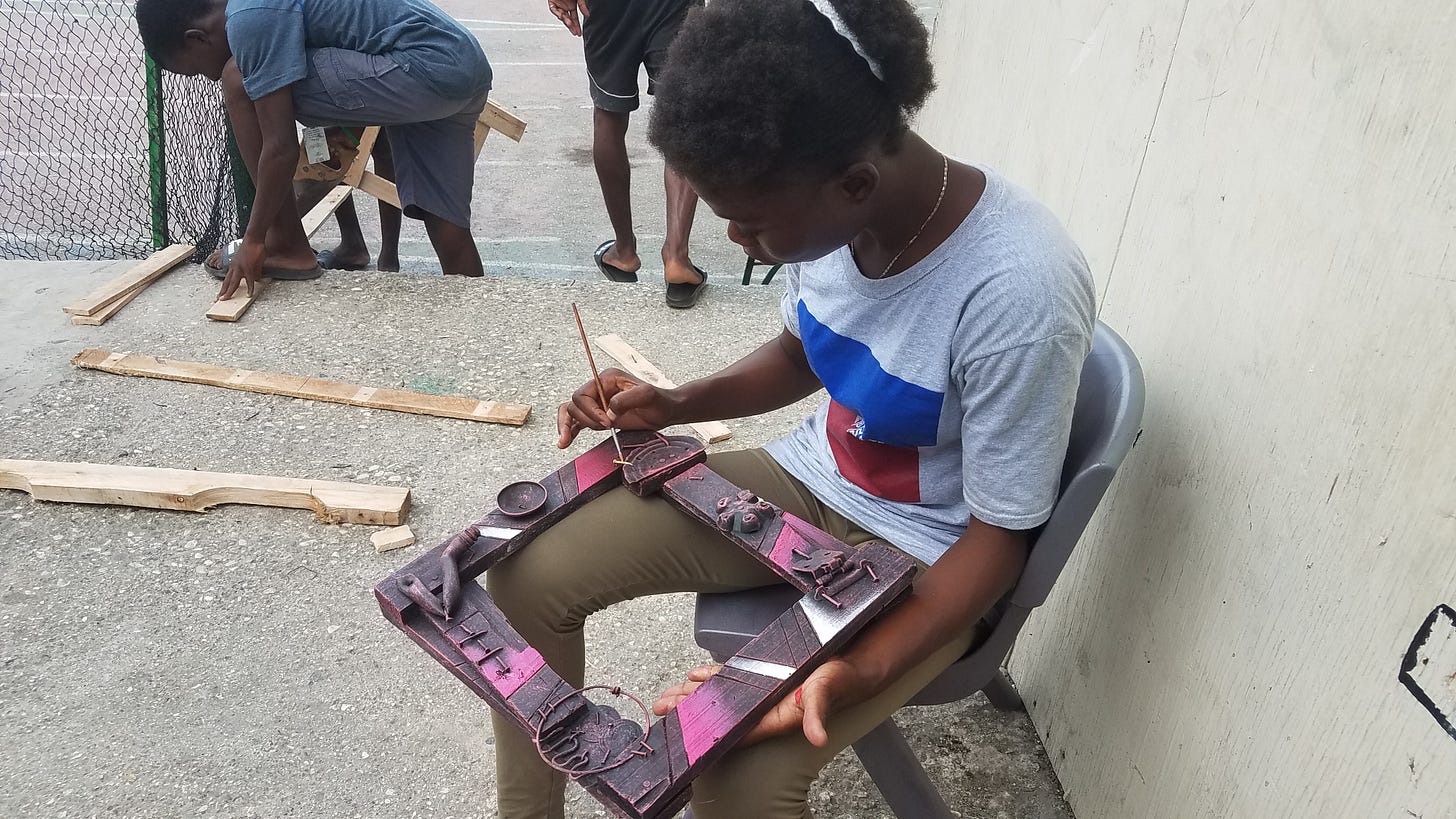
On the greener side, the children here are planting tree seeds in little plastic sachets that once held a serving size of water. Countless empty plastic sachets litter the streets of Port-au-Prince after people have finished drinking the water inside.
At SAKALA they give the water sachets new life as a seed starter, which you can see in the picture below.
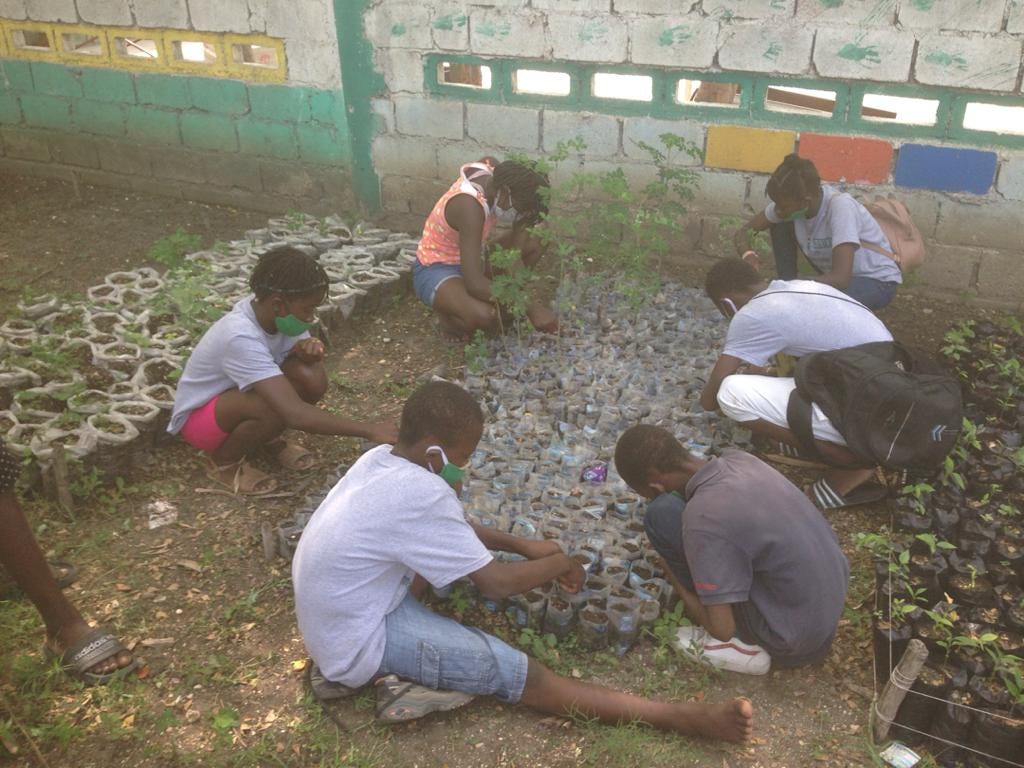
And the soil they are using to plant the seeds is made with compost produced at SAKALA. They use organic waste like fruit and vegetable peels — such as these coconut husks below— commonly found in little street dumps near food markets.
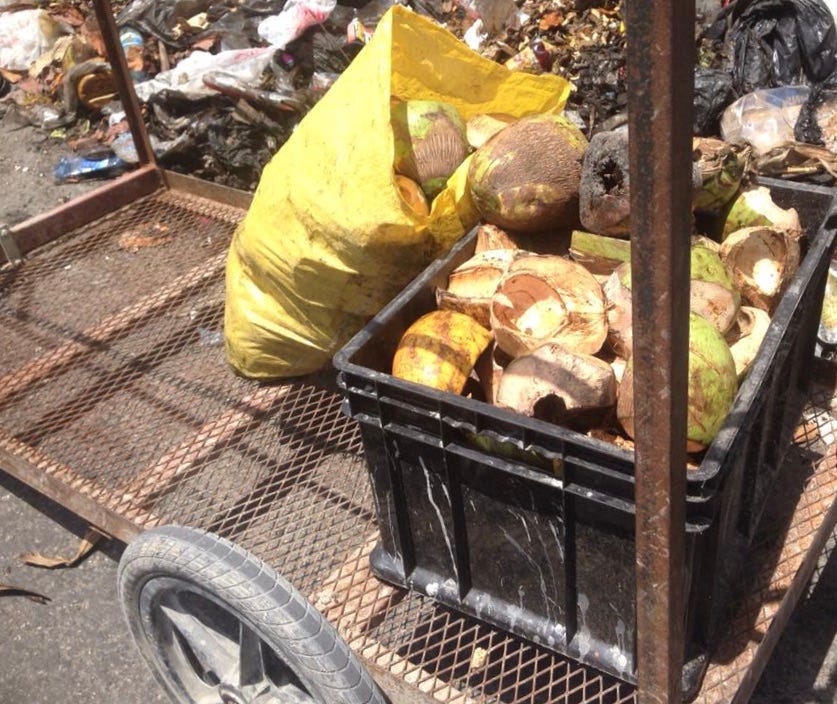
SAKALA has been making its own compost for a few years now. Some former beneficiaries have even made a little business of it. The process both gets the food waste off the streets and uses it to produce the compost to improve the soil which in turn can grow more food. A perfect loop.
In the past year, SAKALA has started a pilot project – with a grant from the US Embassy in Haiti – that uses bicycle-hauled trailers to collect waste in the street. The plastic bottles and cans are sent for recycling and the organic waste is used to make compost.
Using bicycles to pull the trailers is not only environmentally friendly, it is a practical solution to Haiti’s chronic fuel shortage. They don’t have to shut down when there is no gas to be found. And, bonus, it has to be a great fitness program as well. Who needs a gym?
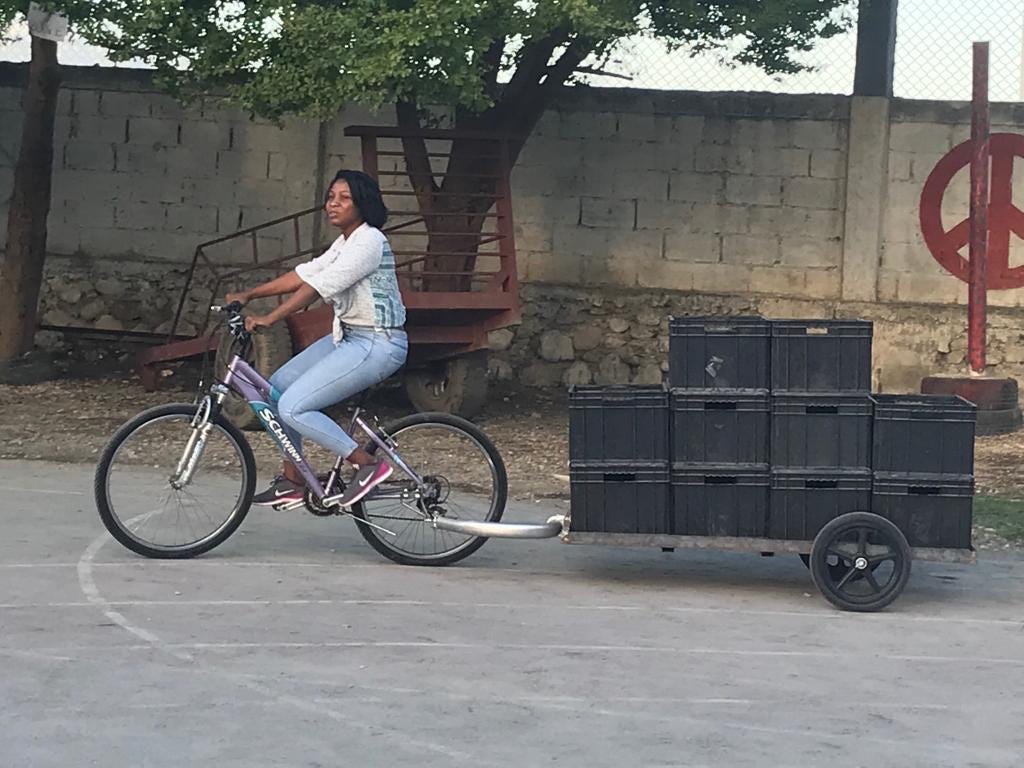
One of the larger visions of SAKALA – and its leader Daniel Tillias, a CNN Hero for 2019 – is to build a better world through not just improving the environment but creating jobs in the process. An economic and environmental win-win.
If you want to specifically support SAKALA’s Vendredi Latè (Earth Friday) environmental programs – perhaps give some business to our enterprising compost creators -- you can do so through the SAKALA website. Add a note to your donation that this is where you would like the funds to go.
Let’s say $1 per tree seed planted in one of those little plastic sachets.
Or $10 to transplant a tree seedling when they outgrow the sachet — like these little trees (I think they are tamarind fruit trees) that this boy is watering in SAKALA’s nursery. (I can’t see all the words, but the SAKALA T-shirt he is wearing has a Haitian Creole message of solidarity in the fight against the Covid-19 pandemic.)
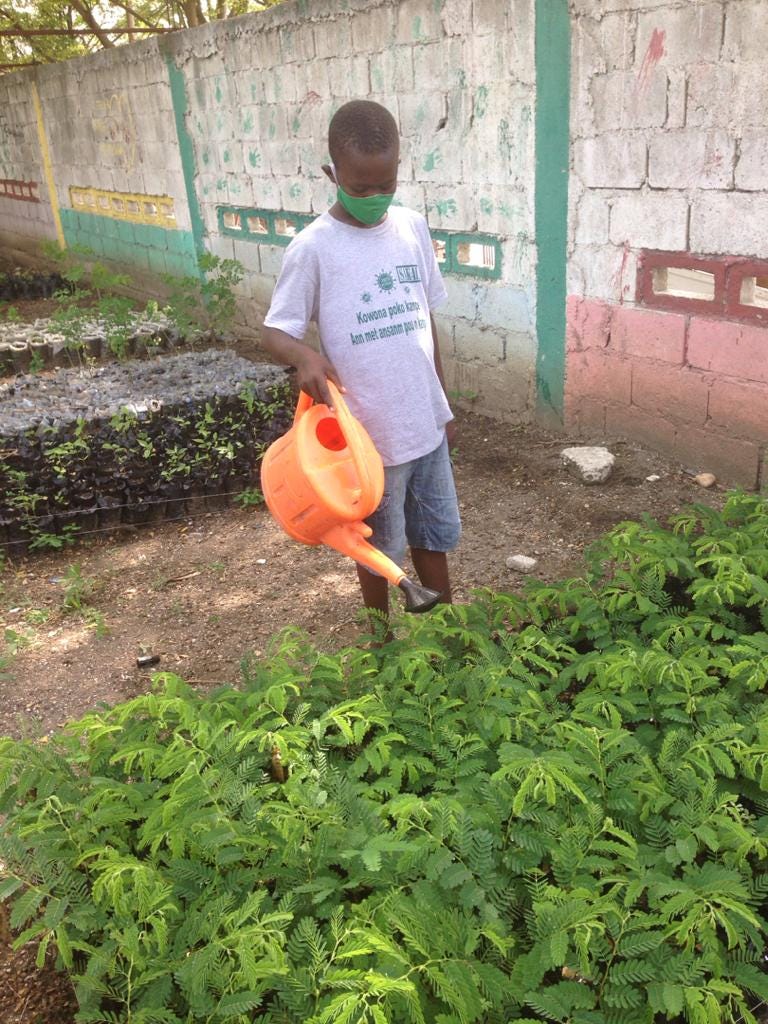
When Daniel Tillias talks about this particular dream, he sees millions of trees planted and thousands and thousands of jobs created in this better, greener, safer world – not just in Cité Soleil and Haiti, but everywhere.
I’ve learned not to bet against them.
So please plant a SAKALA seed today wherever you are. Your choice: it could be a tree, a flower, an act of kindness and understanding.
See what grows.
Mèsi anpil anpil (thanks very, very much in Haitian Creole) for your solidarity with SAKALA!
Wishing you much peace, happiness, and health.
Happy Vendredi Latè!


